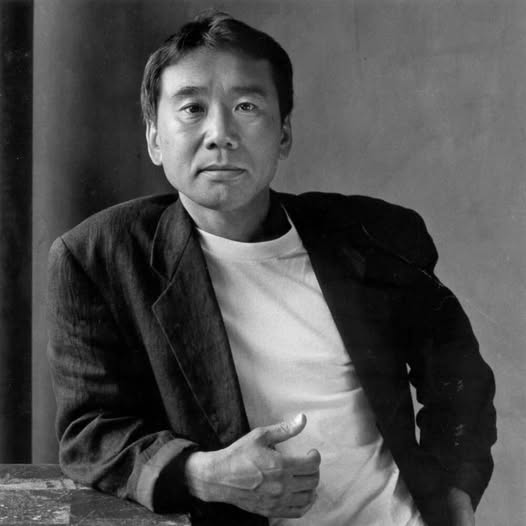Haruki Murakami is one of the most influential and widely read contemporary Japanese authors. Born in Kyoto in 1949 and raised in Kobe, Murakami grew up surrounded by both Japanese traditions and Western culture. This blend of influences would later define his unique literary voice — a mixture of realism, surrealism, and emotional depth.
Murakami’s writing stands out for its ability to explore loneliness, identity, love, and the search for meaning in a rapidly changing world. His novels often blur the boundaries between reality and dreams, the conscious and the subconscious. Works such as Norwegian Wood, Kafka on the Shore, The Wind-Up Bird Chronicle, and 1Q84 have captivated millions of readers worldwide. They transport us into strange yet familiar worlds where the ordinary becomes extraordinary and every silence seems to carry hidden meaning.
One of the most remarkable aspects of Murakami’s work is how he uses Western cultural elements — such as jazz, classical music, and American literature — while remaining deeply connected to Japanese sensibility. His characters are often introspective individuals who struggle with feelings of isolation or the loss of purpose, reflecting the alienation many people feel in modern society. Through them, Murakami expresses universal emotions that transcend borders.
Beyond his novels, Murakami is also known for his essays, short stories, and translations of Western writers such as F. Scott Fitzgerald and Raymond Carver. His clean, rhythmic prose and use of magical realism have created a style that feels both simple and profound. He has received numerous international awards and continues to be considered a strong candidate for the Nobel Prize in Literature.
What makes Haruki Murakami special is not only his storytelling, but his ability to make readers reflect on their own lives. His worlds are filled with cats that talk, mysterious wells, and music that heals the soul — yet beneath all the surreal imagery lies a deep human truth: the need for connection, understanding, and love.
Haruki Murakami’s literature reminds us that every human being carries invisible worlds inside, and that even in the darkest moments, there is always a door leading to self-discovery. Through his words, he has given modern literature a quiet, introspective rhythm — one that continues to echo in the hearts of readers across the globe.

